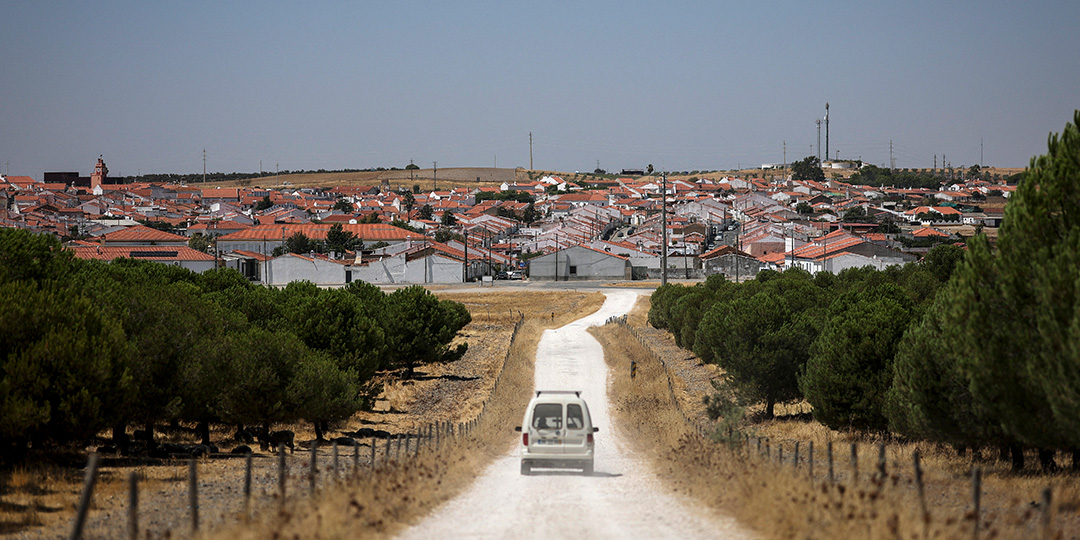Winds hampered efforts to put out a wildfire raging Wednesday near the Spanish tourist town of Tarifa that prompted evacuations, as the government said over 1,000 deaths in July were linked to extreme heat.
Although fire crews had secured areas near hotels and other tourist accommodation, the fire was still not under control, said officials.
“What concerns us most right now is the wind — whether it shifts between the west and east,” said Antonio Sanz, interior minister for Andalusia’s regional government.
The fire broke out Tuesday near La Pena, a wooded area close to a beach outside Tarifa. The south coast town of about 19,000 people is known for strong winds, which draw windsurfers.
Spanish public broadcaster TVE reported that the fire had started in a camper van at a campsite which was quickly spread by strong winds.
About 1,550 people and 5,500 vehicles were evacuated from campsites, hotels, and homes, said Sanz.
Emergency crews worked through the night to prevent the fire from reaching coastal resorts, but residents and tourists have not been allowed to return, he added.
Spain is experiencing a heatwave with temperatures nearing 40C in many regions.
Civil protection authorities have warned of a “high” or “extreme” wildfire risk across much of the country.
Officials reported 1,060 excess deaths in July that may be attributed to intense heat, a 57 percent increase over the same time last year, according to health ministry data released on Tuesday.
The ministry used data from Spain’s Mortality Monitoring System MOMO tracking daily mortality nationwide and compares it to historical trends.
It also incorporates external factors, such as weather data from the national meteorological agency AEMET, to assess likely causes of mortality spikes.
Although MoMo cannot confirm a direct cause between deaths and high temperatures, it provides the most reliable estimate of fatalities in which heat was likely a decisive factor.
Climate experts say that global warming is driving longer, more intense, and more frequent heat waves around the world.
al-rs/ds/tw
© Agence France-Presse








